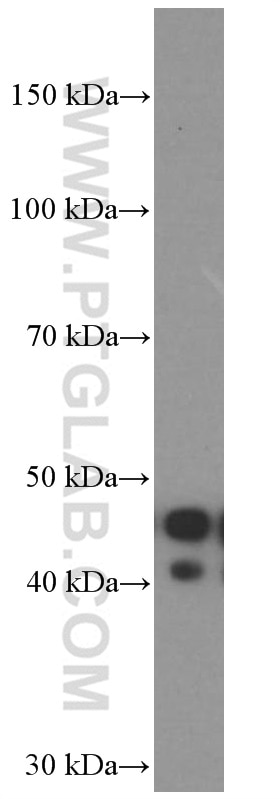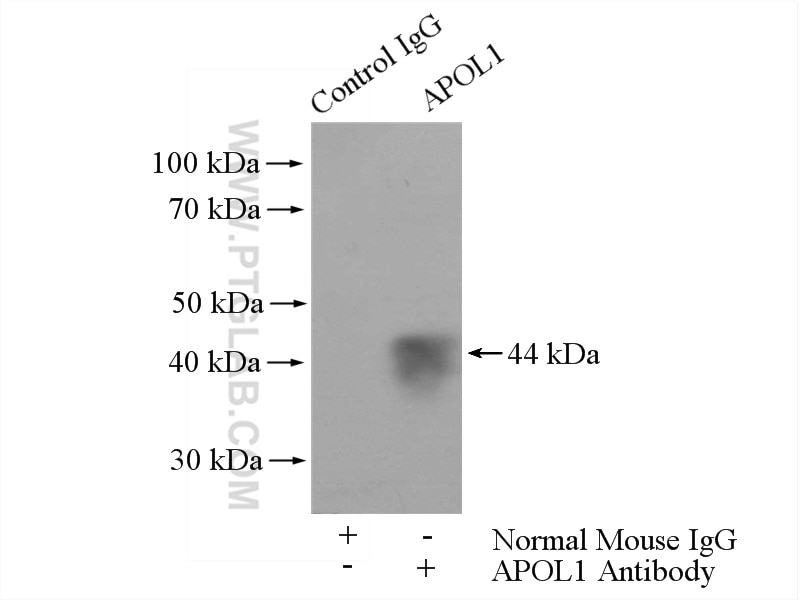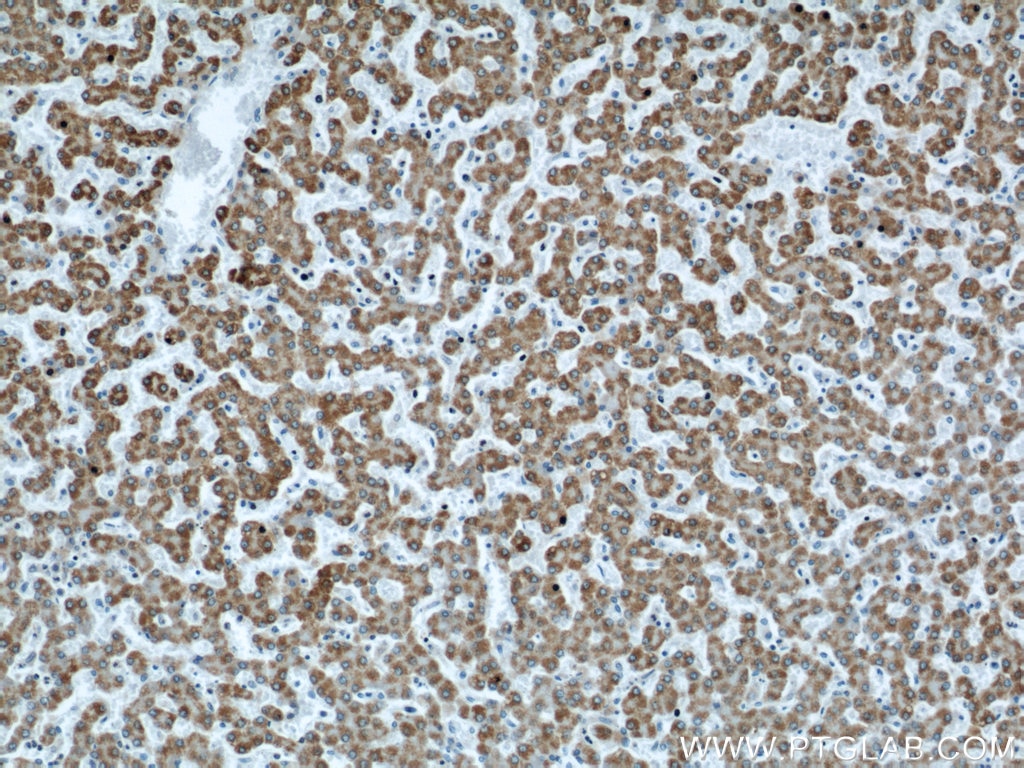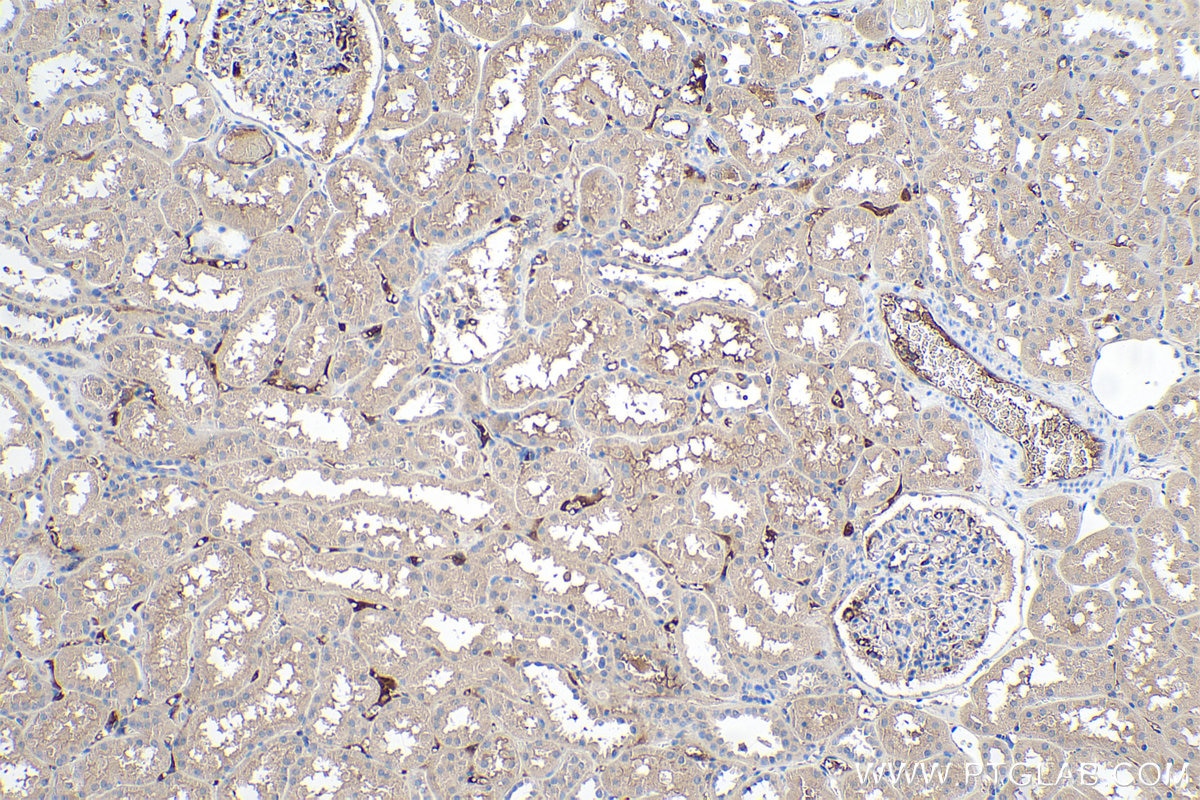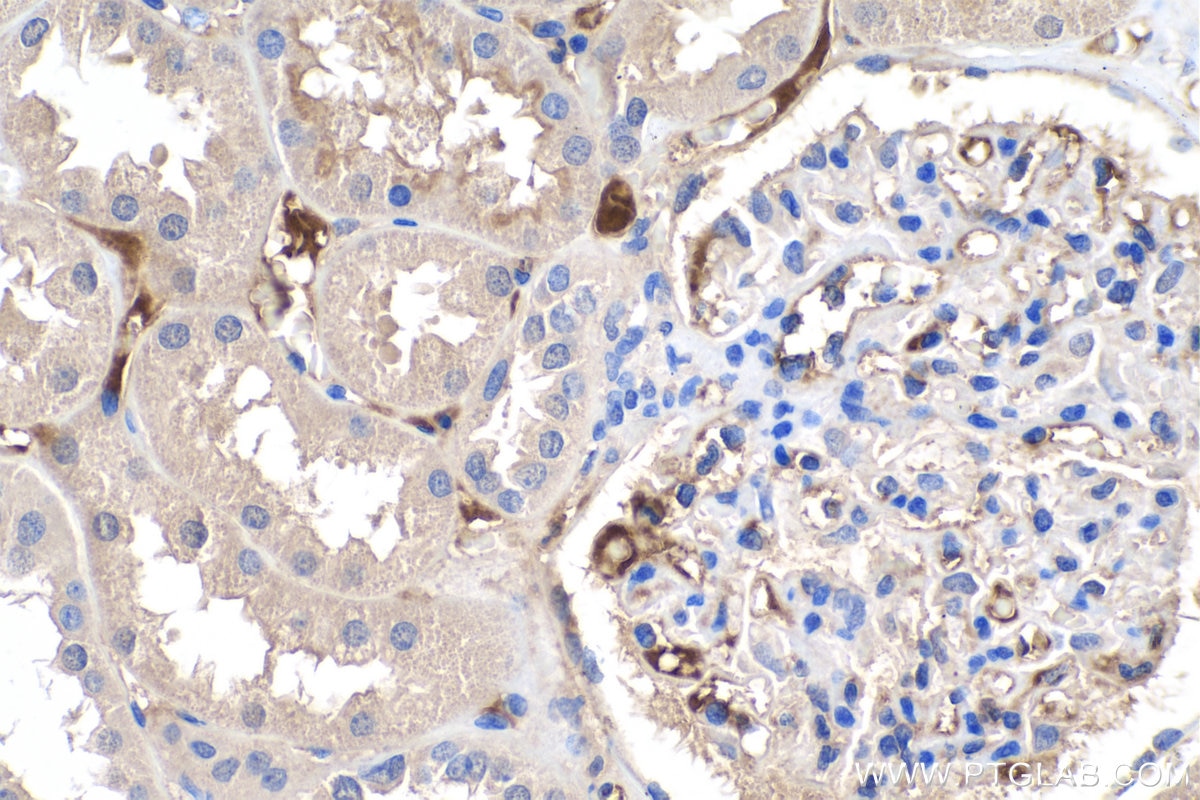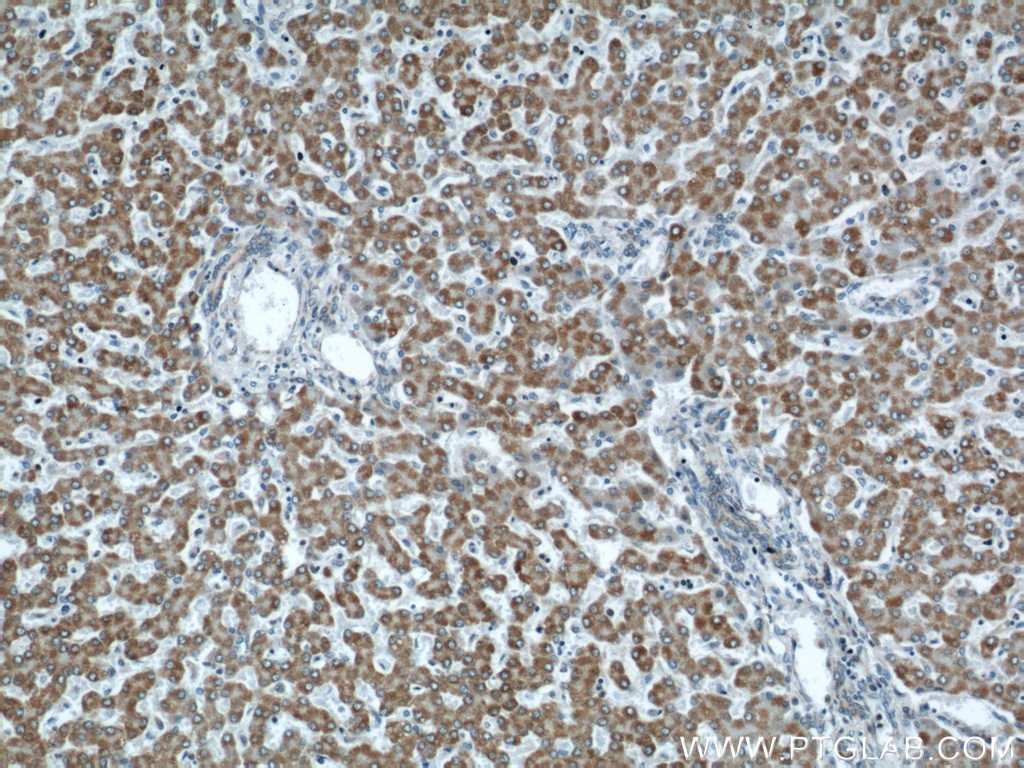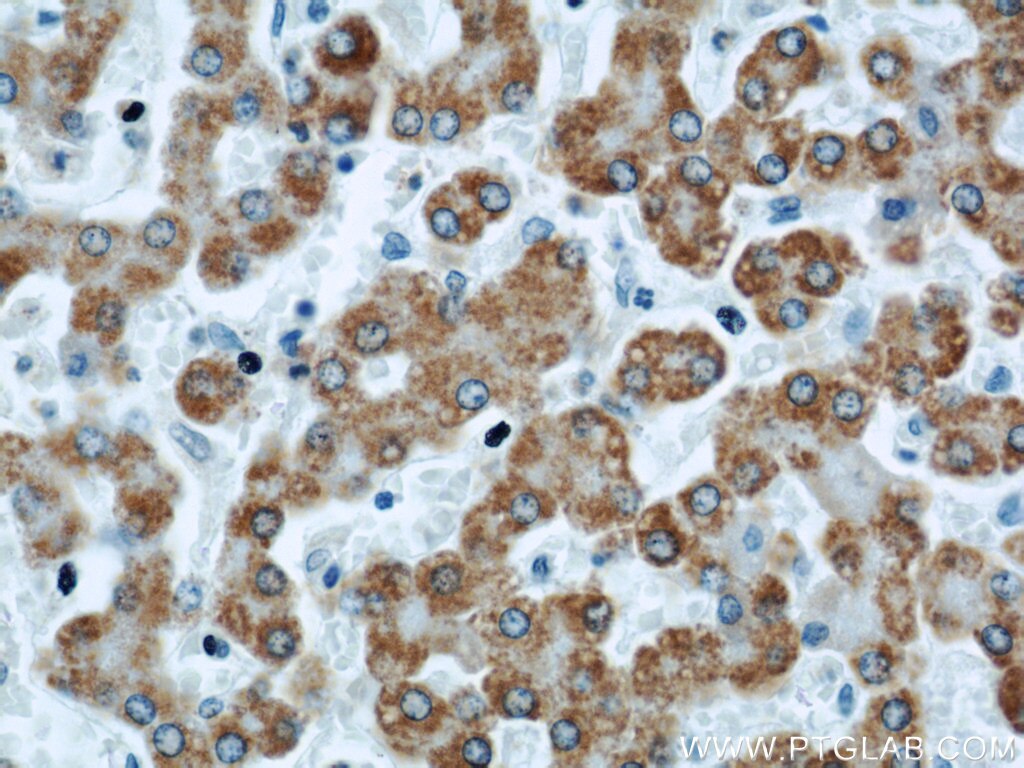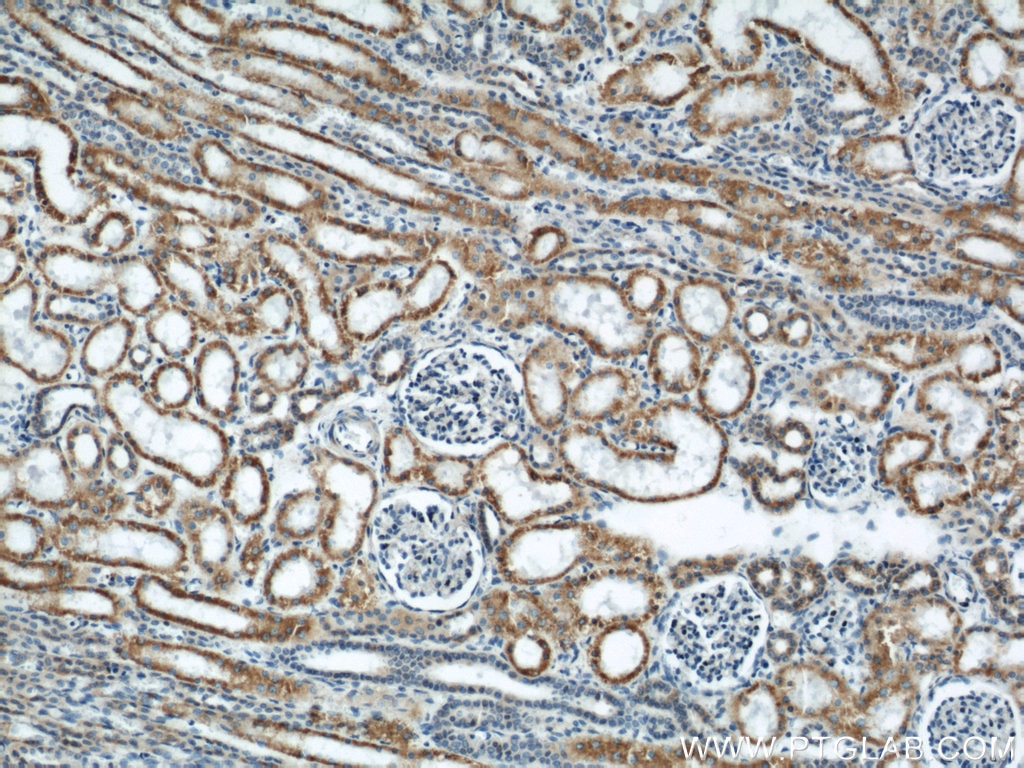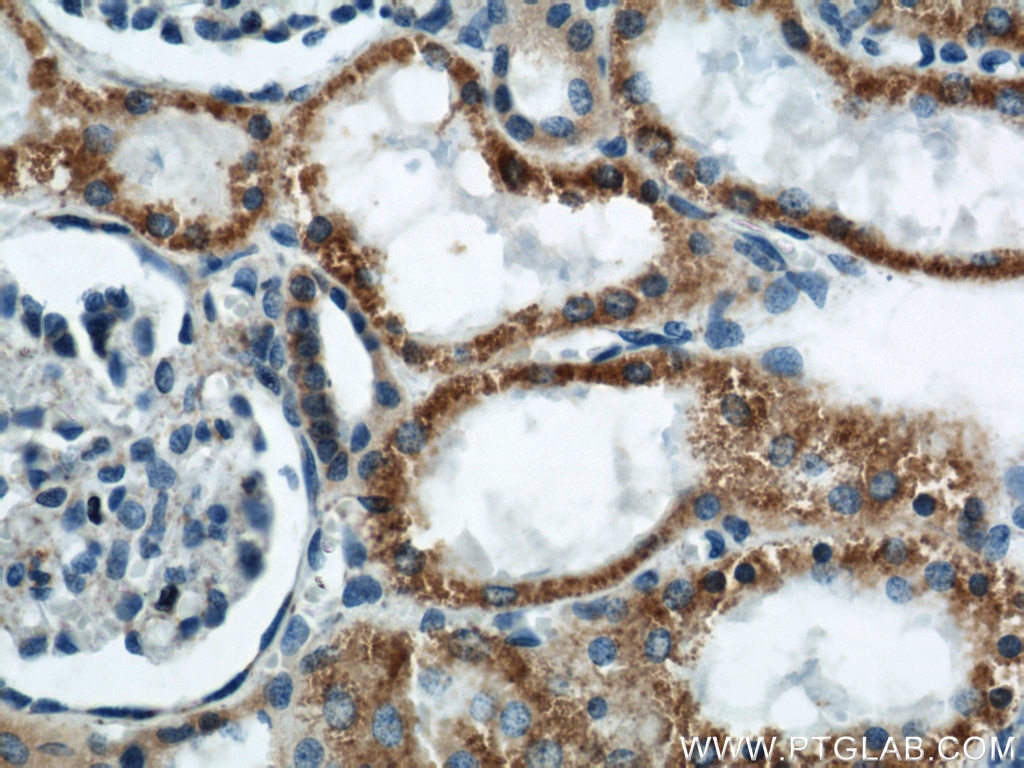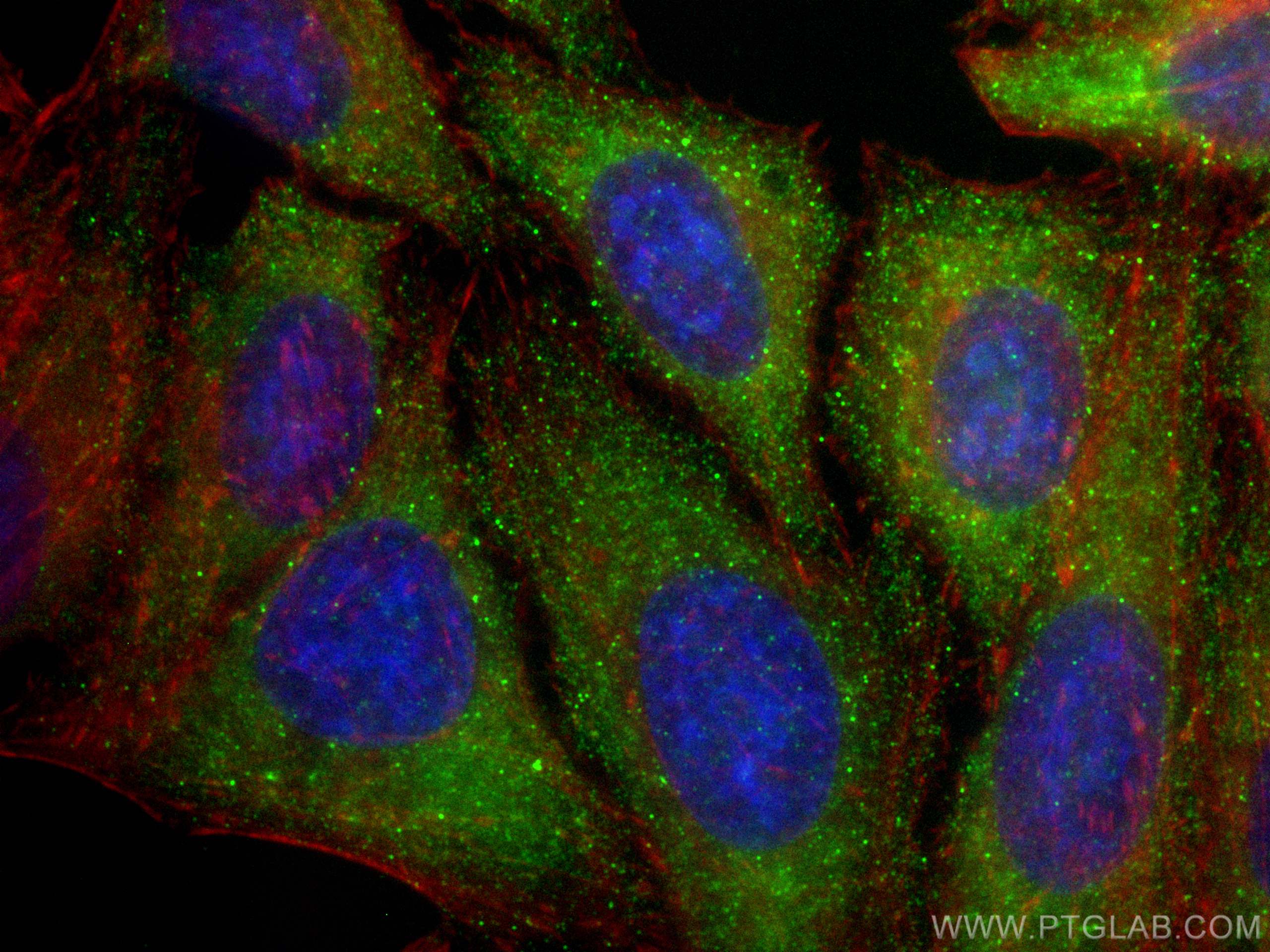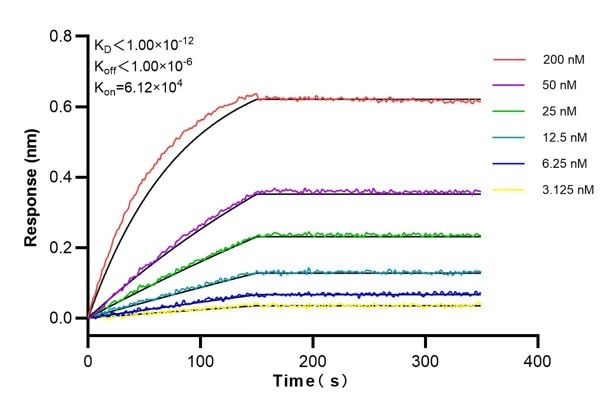- Featured Product
- KD/KO Validated
APOL1-Specific Monoklonaler Antikörper
APOL1-Specific Monoklonal Antikörper für WB, IHC, IF/ICC, IP, ELISA
Wirt / Isotyp
Maus / IgG2a
Getestete Reaktivität
human
Anwendung
WB, IHC, IF/ICC, IP, ELISA
Konjugation
Unkonjugiert
CloneNo.
1G12D11
Kat-Nr. : 66124-1-PBS
Synonyme
Geprüfte Anwendungen
Produktinformation
66124-1-PBS bindet in WB, IHC, IF/ICC, IP, ELISA APOL1-Specific und zeigt Reaktivität mit human
| Getestete Reaktivität | human |
| Wirt / Isotyp | Maus / IgG2a |
| Klonalität | Monoklonal |
| Typ | Antikörper |
| Immunogen | APOL1-Specific fusion protein Ag2016 |
| Vollständiger Name | apolipoprotein L, 1 |
| Berechnetes Molekulargewicht | 44 kDa |
| Beobachtetes Molekulargewicht | 39-45 kDa |
| GenBank-Zugangsnummer | BC017331 |
| Gene symbol | APOL1 |
| Gene ID (NCBI) | 8542 |
| Konjugation | Unkonjugiert |
| Form | Liquid |
| Reinigungsmethode | Protein-A-Reinigung |
| Lagerungspuffer | PBS only |
| Lagerungsbedingungen | Store at -80°C. 20ul Größen enthalten 0,1% BSA. |
Hintergrundinformationen
Human apolipo-protein L1 (APOL1) is a minor component of plasma high density lipoprotein (HDL) particles, acting as an interacting protein of apolipoprotein A1 (ApoA1). The human ApoL protein family was thought to be predominantly involved in lipid transport and metabolism. APOL1 is also involved in host innate immunity against Trypanosoma parasites. Once activated, APOL1 can lyse the parasite and protect human from infection. Genetic variants in APOL1 gene, which are found in African ancestry with high frequency, associate with chronic kidney disease, like focal segmental glomerulosclerosis (FSGS), HIV-associated nephropathy (HIVAN), and hypertensive nephropathy. APOL1 share structural and functional similarities with proteins of the Bcl-2 family and may has roles in apoptosis and autophagy. It is notable that APOL1 exists only in human and a few other primate species, and mouse does not express an APOL1 orthologue. This antibody recognizes the endogenous ApoL1 of 39-45 kDa in blood lysate. This antibody is specific to APOL1.
